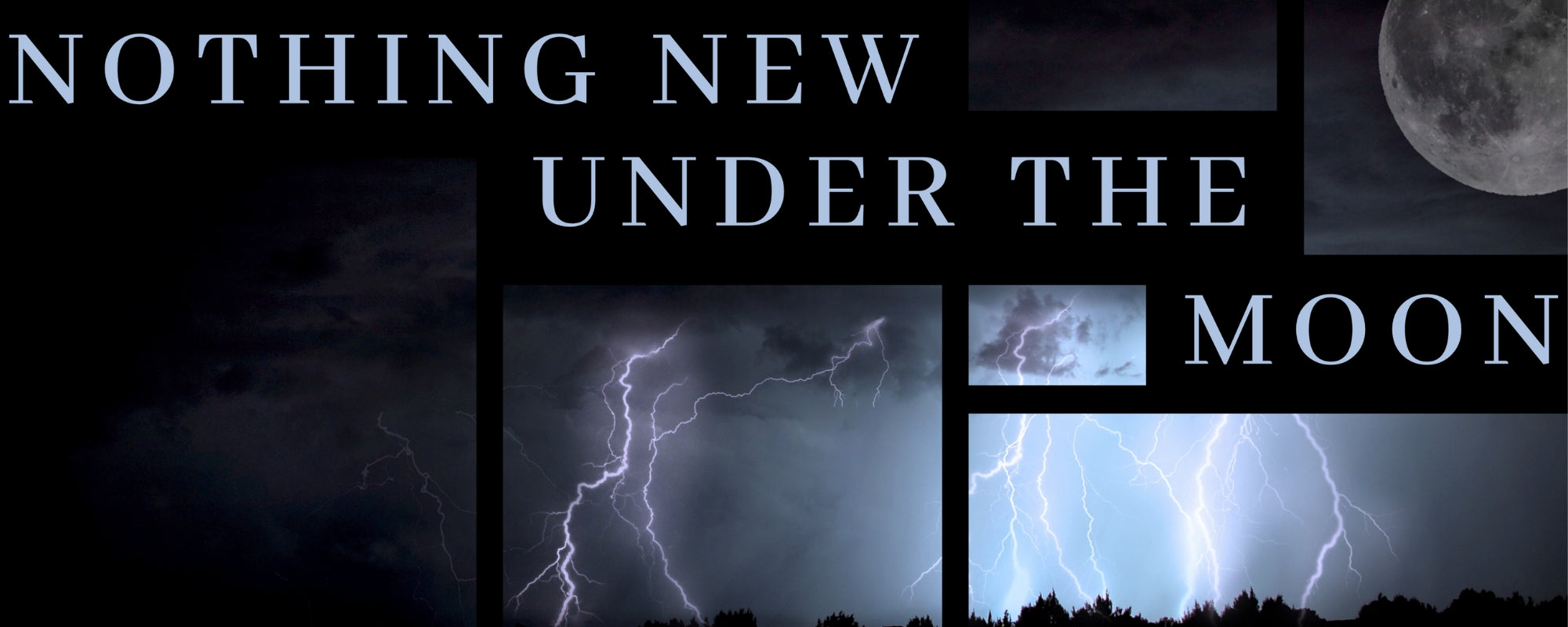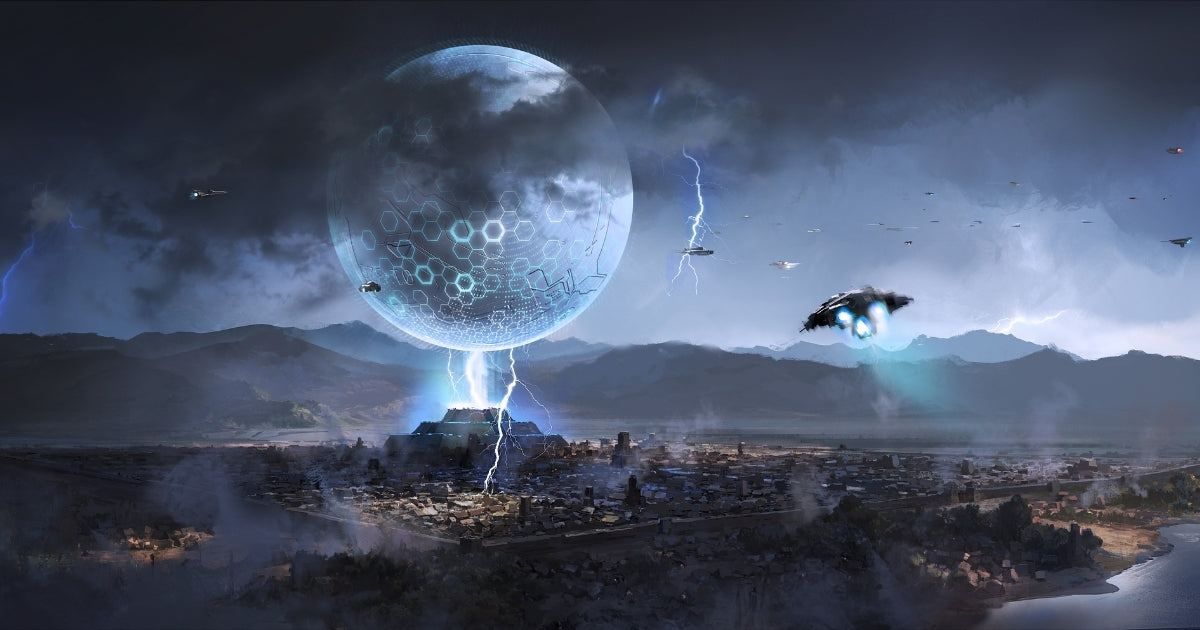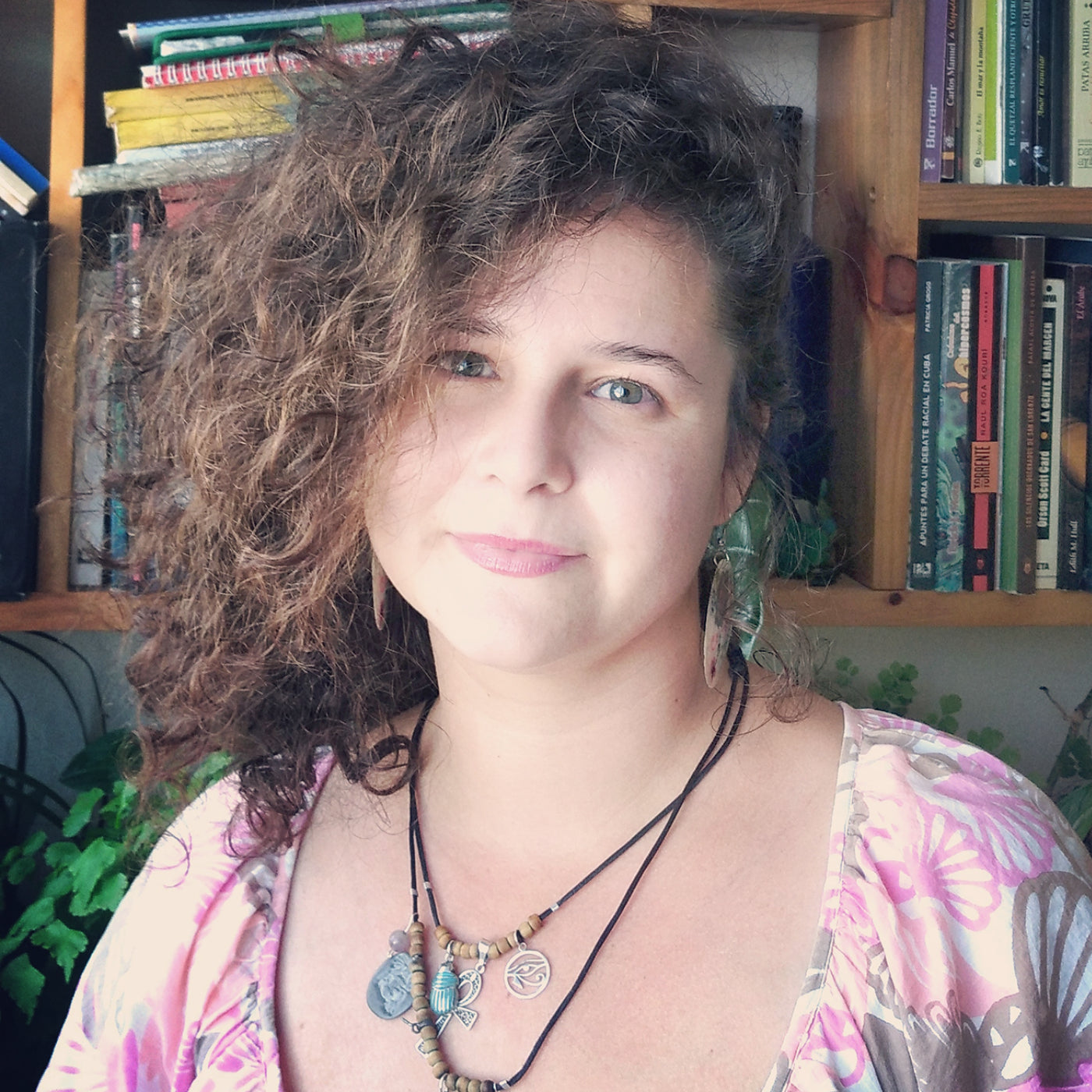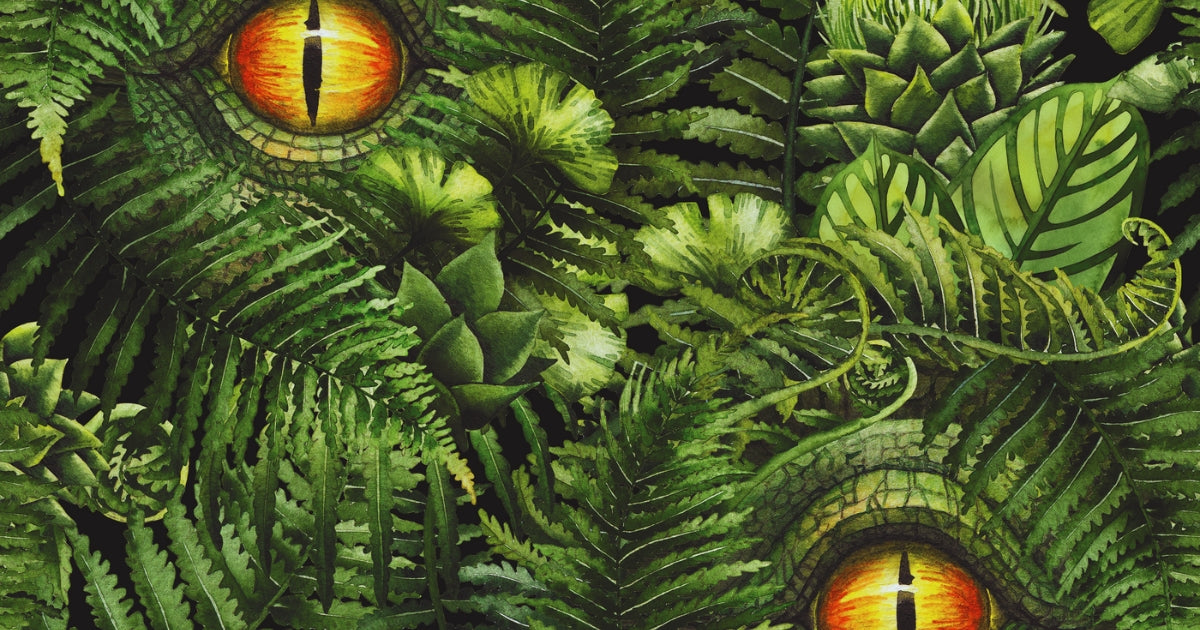

Nothing New Under the Moon
By Malena Salazar Maciá
Translated by Toshiya Kamei
Audio Narration by Kit Adames
The strangers came down from the heavens in silver-gray ships with no roaring propellers, spewing dark liquid. I snuck a peek at them from behind my parents. They looked like us—four limbs, mouth, nose, eyes shielded behind heavy lids. They were our mirror images, as if looked through stained glass. With smiles on their faces, they salivated over our vast, fertile land.
“This land is ours now,” the strangers told us through their AI interpreters. “It’ll do us good to settle here.”
In return, they gave us a sliver of the knowledge stored in their memory banks—handed down from their ancestors, as well as acquired while traversing through the immense void. They wanted a place to live, like the rest of us. We acquiesced. They thrived in their new world, which had been ours since forever.
A few moon cycles later, the strangers paid us a visit. The land they made theirs responded well to their hands. But as they grew in number, resources became scarce. They should have gone easy on reproduction. They needed more space to expand their paradise.
“Don’t look for another place for us,” they told us, grinning from ear to ear. “We’ve found forests, mountains, steppes, rivers, and seas. We’ve scared away intruders. We’ve got everything we need. Now all that will be ours, too.”
We lowered our heads and gave in. After all, we felt as if we were looking at our reflections.
Some of us became alarmed. Rumors spread that the strangers didn’t come in peace. They were conquerors. Grabbed everything they could get their hands on and sucked the earth dry. Then they moved on to the next world, trampled everything in sight, ripped it apart, and molded it to their liking. They wanted all or nothing.
We split into different factions. Some of us went to their settlements and came back with wonderful stories. Others stayed there, mingled with the strangers, and lived among them. The strangers, who took root on our planet, also came to us. They imposed their laws on us, claiming that theirs were better than ours. They showed us their reproductive methods, holograms, languages, and gods. They convinced us that theirs were better than ours, stuffing their culture down our throats. Our ways of living were inferior, risible, and out-of-date.
The strangers gave us lessons. They called us useless and lazy. They wanted us to discard our beliefs that had given us comfort for many moon cycles. They urged us to take risks and embrace change. As far as they were concerned, they were here to civilize, educate, and train ignorant barbarians.
Maybe we should have listened to the dissident voices among us. Maybe we shouldn’t have offered the strangers shelter when their silver-gray ships landed. We should have realized that the glass through which we saw them was stained. Their movements changed. Their words, their breathing, and their way of listening to us altered. They pulled back the lids that shielded their eyes, revealing their scorn, disgust, and hatred, along with the fear of the other, the foreign, the unknown.
Our social status changed. In the eyes of the strangers, we became outcasts, inferiors, and savages. Threats, plagues, and invaders. We committed blasphemy when we kissed the earth and didn’t look up at them, heavenward, according to their laws. They erected statues of themselves and put invisible shackles on our wrists and ankles. They burned down our idols and spat on our customs. They hated mixing. They needed us, but at the same time, they didn’t.
“What are you complaining about?” the strangers asked. “What makes you think you’re our equals?” They razed our homes and built theirs upon them. “Now we own this land. It’s ours. You were born to work. To serve us. We’ve got to build incinerators. We’ve got to put you in your place.”
We were prey. The strangers pursued us, searched for hybrids, cooked up conspiracies, and hunted their own species when some defended our cause. They silenced those who protested by slapping them with trumped-up charges.
Under the crescent moon, my people snuck up to where the strangers kept their silver-gray ships. We approached them and told them we needed to leave behind our ancestral land. We needed to escape and start anew. Those who came to our defense left with us.
As our allies piloted the ships, we learned about the cosmos, its mysteries, and its dangers. We saw worlds on the verge of collapse, devoured by themselves. They warned us of the past and prepared us for the future. They plotted safe routes to evade spies, hunters, and space pirates. Hundreds died from inclement weather, accidents, and old age. New generations were spawned. Beautiful blends came forth and preserved both cultures. We learned to fight and survive until we found a new world to settle.
We landed in the middle of a dense jungle that brought us tears of nostalgia for what we had lost. No one showed up to receive us. Our ships failed to detect any intelligent life. But the planet came with an adequate atmosphere, a stable biome, and stars that would bring us times of abundance and scarcity at reasonable intervals. The virgin land seemed so similar to the one we left behind that we kissed the ground and called it home.
The creatures crawled out of the thicket and came out into a patch of moonlight. They inched closer and stared at us with a mixture of curiosity and fear in their eyes. Far from our mirror images, they hardly resembled us, not even through tainted glass. Always moving on all fours, they had wolf-like snouts and furry, pointed ears. They communicated through grunts, groans, howls, and roars. Their blunt claws doubled as clubs and sharp stones. They seemed primitive.
“This land is ours now. It’ll do us good to settle here,” our youth explained through our AI interpreters.
Those of us who had come on board turned into wrinkled beings as death’s cold hand tugged at our souls. The invisible shackles weighed heavily on us. We suffered the stings of hatred, contempt, and disgust. Our homes crumbled. Our knees grazed the hard earth as we begged for mercy. History hadn’t been handed down to our youth, or they thought it wasn’t necessary to learn from it. Many gazed up skyward, not down earthward.
We never escaped the shadows of the silver-gray ships that unleashed the invaders on our old home.
Copyright © 2021 Malena Salazar Maciá
The Author

Malena Salazar Maciá
Continue reading

Subscribe to our newsletter
Promotions, new products, and sales. Directly to your inbox.



